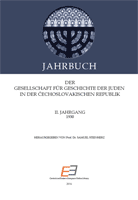
We kindly inform you that, as long as the subject affiliation of our 300.000+ articles is in progress, you might get unsufficient or no results on your third level or second level search. In this case, please broaden your search criteria.

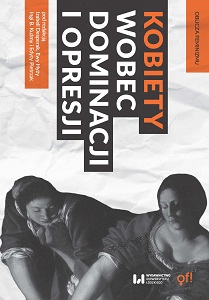
From the very beginning the English second wave feminist theatre strongly emphasized the need to manifest the scale of oppression women were subject to in a patriarchal society. In a group of texts and theatre performances ‒ especially those influenced by the idea of radical feminism ‒ there was a vast array of issues which included phenomena such as: physical violence, sexual harassment, rape, prostitution, pornography, mental oppression or enforced heterosexuality. The point of reference for many literary and stage works was an assumption that the household space became an area of specific “colonizing” of women on many levels. Creations of some theatrical groups showed a picture of everyday life limited to the constantly repeated home rituals; other groups created a vision of the hell of domestic existence marked by physical and psychological violence. In the artistic expression the extreme form of alienation was fetishisation of women – sexual objectification. The characters from texts and theatre performances fight this form of oppression, starting from the territory of domestic and family life, from the area of marital life, and in marriage ‒ from the bed. The issues such as birth control, abortion and contraception also become important for them. Rape is often a model form of violence against women in the creations of British feminist theatre. Dramatic texts (for example written by Sarah Daniels) correspond with the works by radical feminist writers who perceive male sexual violence as spiritus movens of male history, and they regard pornography as the most visible manifestation of male domination. The radical stance of playwrights and actresses is expressed in criticizing a very wide range of practices: from telling misogynist jokes to shooting and distributing pornographic films from a group of the so-called snuff movies. It is worth noting that for English fringe theatre women’s specific experiences, including actresses’ personal experience, soon began to be a significant inspiration. However, the problem-orientated performances of the feminist groups of the British second wave avoided shallow agitation and featured the ideological content expressed in a variety of interesting theatrical means.
More...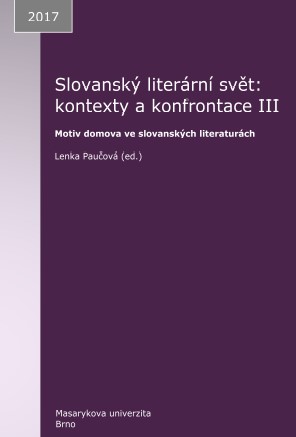
The contribution deals with the new Czech play Actor and Joiner Majer Talks about the State of his Home which was written by David Zábranský for Studio Hrdinů Theatre in Prague. This play is conceived as a polemic with the majority political view and lifestyle of certain social groups; it is constructed as a text a là thèse. We are especially analysing the linguistic (stylistic), structural and argumentative aspects of the Zábranský’s text with regard to the following performance by Kamila Polívková (2016, performed by Stanislav Majer) and its context.
More...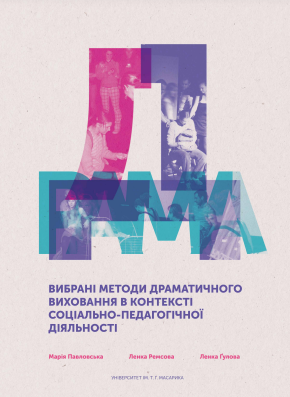
Структурована драма — це особливий тип проекту. Можна також зустріти інші терміни: шкільна драма, драма в навчанні, дитяча драма, драма історій, процесуальна драма, тематична драма, конвенційна драма або структурована драматична гра. Це поняття, які при детальнішому дослідженні позначають одне і те ж. Вони позначають спосіб навчання, який базується на досвіді та подальшому покращенні розуміння людської поведінки, самих себе і світу, у якому ми живемо. У публікації ми будемо послуговуватися терміном «шкільна драма», оскільки сьогодні з ним стикаємося найчастіше. У шкільній драмі використовуються драматичні прийоми та техніки. Для участі в драматичній діяльності учням не потрібні театральні навички.
More...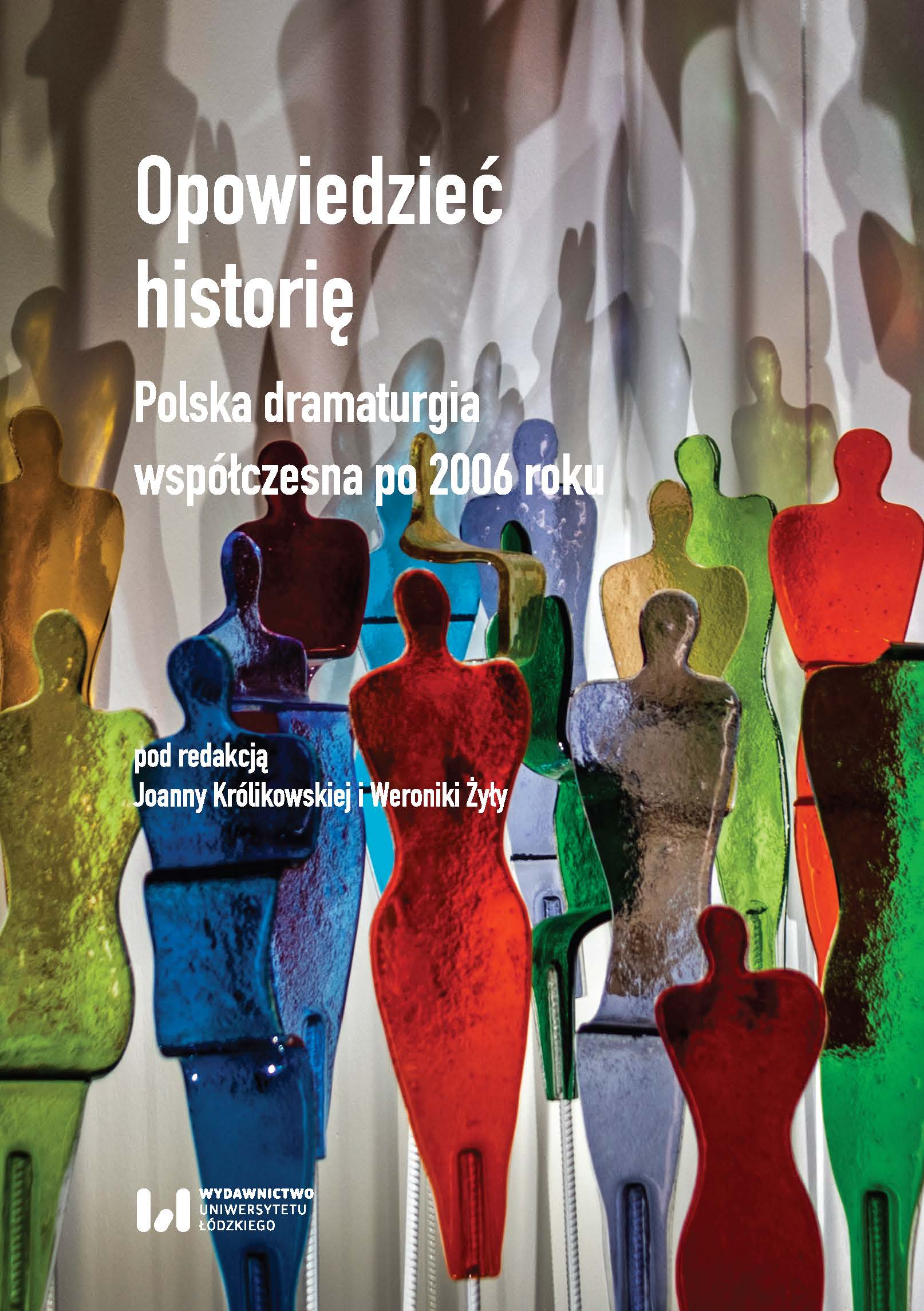
The theatre makers often deal with the issue of the Holocaust, but predominantly they talked about the past and memory with adult audiences. Attempts to tell young audiences about the Holocaust are therefore a novelty in Polish theatre. Two performances: “Huljet, huljet” of Teatr Figur in Krakow and “Rutka” of the Arlekin Puppet Theatre in Lodz, both presenting the life of Jewish children in ghettos are examples of activities undertaken in this trend. Both of them are based on local stories related to the cities where theatres operate. “Huljet, huljet”, directed by Dagmara Żabska and Alla Maslovskaja, refers to the Krakow ghetto, Rutka, directed by Karolina Maciejaszek, to the Lodz ghetto. The common element for both shows constitutes making children the main characters and presenting life in a closed neighborhood from their perspective. The analysis of the indicated performances made it possible to check how the creators constructed the stories about the childhood experience of the ghetto and by what means they tried to convey this experience to the young audience. In this context it is worth to mention the importance of considerations done by Frank Ankersmit, in particular the categories of "historical experience" and "experience about the past".
More...
The article analyzes the role of musicality in presenting historical events in contemporary Polish drama. Music is not only an ideological vehicle but above all one of the medias for transmitting memory, a trace of past events that are reflected in the present. It is this category of reflection, or resonance, that makes the appearance of music in dramatic texts similar to an echo. Its essence is the ability to convey emotions that cannot always be explained with words and often remain at the level of experience. That is why musicality serves as a filter through which the texts of contemporary Polish playwrights are being critically analyzed. In this case, we use the term musicality in its broad sense. Musicality in dramatic texts covers not only the musical pieces themselves but also the entire sonosphere. Musicality is a powerful way of presenting Polish history in contemporary drama on various levels.
More...
“Mock. Czarna burleska” is a musical play that premiered in 2019, in Musical Theatre Capitol in Wrocław. It is based on seven crime stories by Marek Krajewski. The author of this article claims that (apart from a policeman Eberhard Mock) the second main character of the performance is the city of Breslau. The director of this play Konrad Imiela, who wrote the songs with Roman Kołakowski as well, relying on a literature source, draws an image of a city of depravity on stage. Prostitutes are the narrators of the whole spectacle while the titular character lives in the criminal underworld of Breslau in the 20s and 30s of the twentieth century. Literary fragments that the play was based upon were used in the analysis. Detailed description of the architecture and atmosphere of the city is visible in Krajewski's writing as well. The vibe certainly arises from the genre that the author has chosen. Events of the series take place mostly in the dark streets and sinister bars, while the characters are mostly criminals. The authors of the play in question use not only a text in the case of building a certain climate but also interesting mockumentary techniques, which are a part of a wider reflection on fiction and reality. Pictures used as a part of a scenic design, as well as an exhibition in a foyer, are a mixture of photographs that are styled to look like they were made at the beginning of the twentieth century and those that are authentic. That collection is supplemented with a description, which allows the audience to dive even deeper into a narrated story.
More...
The content of the article concerns the creation of aesthetic trends in recent Polish drama. The author compares the categories of power over the production of discourse, proposed by Michel Foucault, to the exercise of editorial or jury power over the publication or rewarding of texts for theater. He identifies two institutions as having the greatest influence - the magazine Dialog and the Gdyńska Nagroda Dramaturgiczna competition. The article raises the issue of texts rejected by those who evaluate them. The author wonders whether perhaps it is these texts that would not become for researchers a real landscape of different realities, when the texts selected by the institutions, are only a slice of it. To this end, she looks at the dramas created during the coronavirus pandemic, taking this event as formative, from which time the texts will become, or perhaps have already become, a vehicle for cultural memory.
More...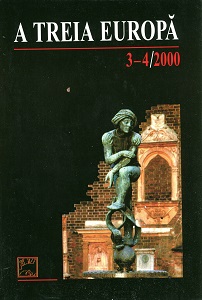
De aproape un secol, teatrul a devenit un capitol al istoriei filosofiei, părăsind vechile sale veșminte și încercând să camufleze ultimele rămășițe ale metafizicii. Nu se mai află în joc doar istoria unor personaje mai mult sau mai puțin arbitrare, patimile pasiunii ori dramele conștiinței. Rolurile principale încep să fie deținute de marile probleme ale existenței și de rezolvările care le pot fi propuse. Realitatea cotidiană e tot mai mult evacuată din orizontul teatralității, fiind înlocuită cu ceea ce am putea să numim, pe urmele fenomenologilor, „atitudinea antinaturală”. Nu mai poate să fie vorba despre o reflectare a vieții, despre reproducerea acelor situații și gesturi pe care le știm din experiența noastră zilnică. Teatrul devine o căutare a sensului vieții, o provocare la adresa tabieturilor și platitudinilor, o alunecare înspre mister. Tocmai de aceea, ne-am propus să înfățișăm în acest eseu modul în care gândesc teatrul trei dintre marii teoreticieni (și practicieni) polonezi ai domeniului: Witkiewicz, Kantor și Grotowski.
More...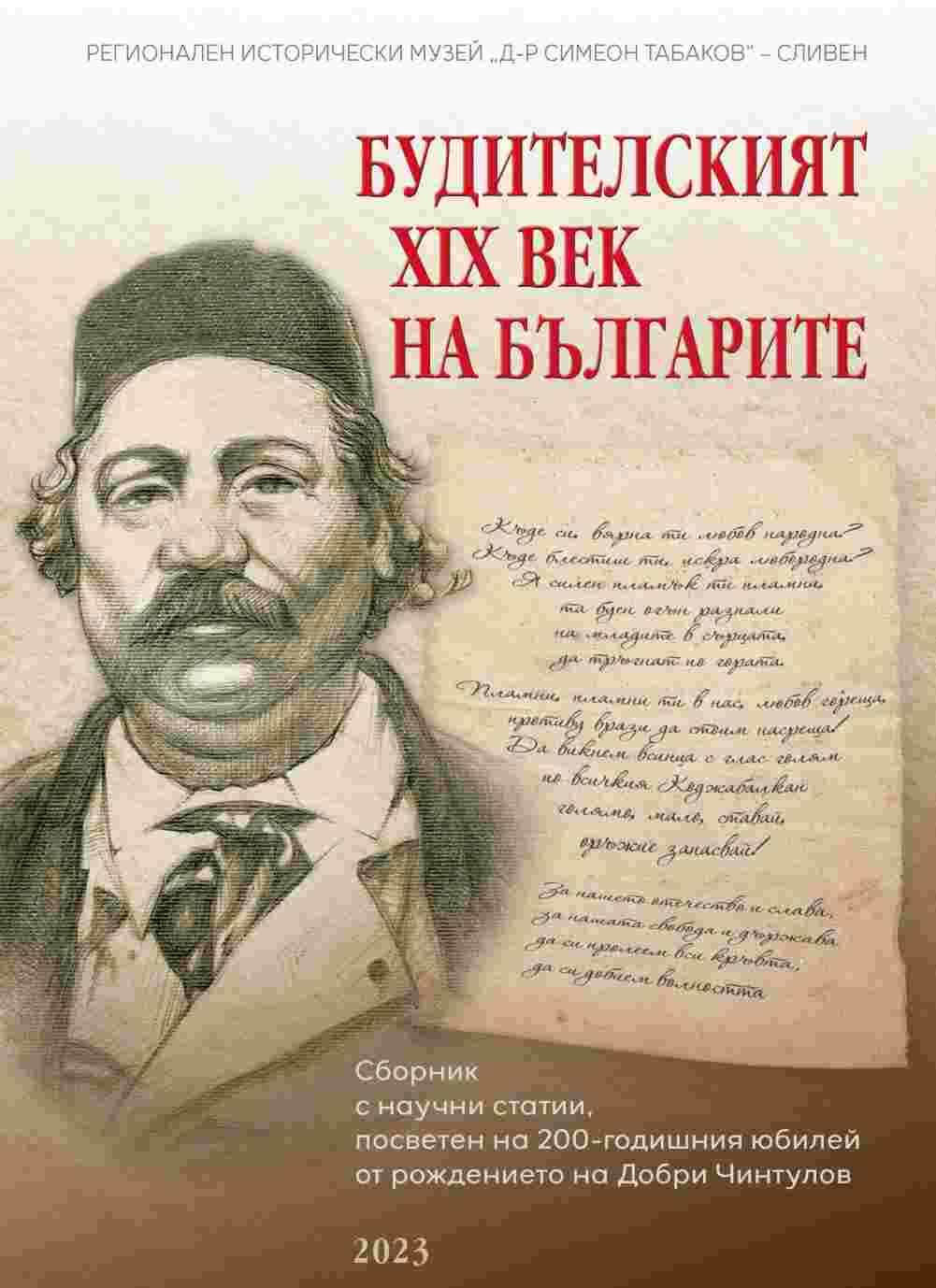
Bulgarian theatre emerged after the mid-nineteenth century. The first theatrical displays were greeted with mixed reception - from sincere joy at given performances to fear of the damage they would cause. This contrast of opinions stemmed from the basic opposition of “the domestic and the foreign” for the second half of the Bulgarian 19th century, on the basis of which the new societal and cultural model of social and personal relations was built.Theatre was perceived as an element of European modernity, i.e. as something foreign to traditional Bulgarian cultural practices, and its recognition as part of Bulgarian cultural life took time. How did this happen? The thematic fields that make up the plots of Bulgarian Revival dramaturgy are also based on the opposition and evaluative comparison of the domestic and the foreign.The most commonly used model of a negative character in Revivalist drama is that of the foreigner. Byzantine characters are the traditional negative characters in historical dramas. In later plots, the Byzantines are replaced by representatives of the Greek clergy, who come to embody the generalized dramaturgical image of the foreigner - the Greek. The Revivalist present is also problematized through the theme of European modernity. Instead of a ready and easy model to follow, modernity turns out to be a threat to the “domestic”. It necessitates changes in appearance, language, family and social relations. The Christomatic example of a dramaturgical interpretation of this predicament is D. Voynikov's drama The Misunderstood Civilization.After all, urban culture was making inroads into Bulgarian society and for a little over a decade, the theatre established its place in Bulgarian cultural life. Already in the 1880s, it became an important element of the cultural policy of the young Bulgarian state.
More...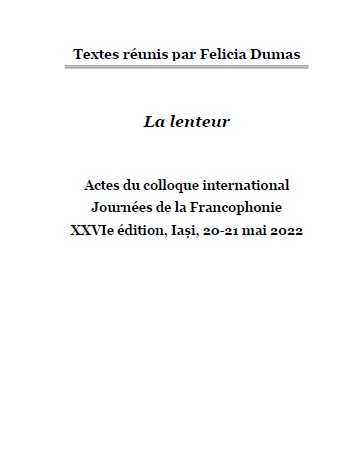
Our study aims to approach and interpret the notions of scenic slowness and dramatic acceleration in the theatrical play Les Oranges (1998) by the Algerian francophone writer Aziz Chouaki (1951-2019). First, we will try to decipher the identity of the scenic slowness and statism that welcome the anonymous and timeless protagonist of this particular theatrical play. In a second step, we will attempt to put them in relation within the acceleration of the dramatic and extra-scenic action of the play. The rapprochement of these two conditions of the dramatic text and the theatrical performance will lead us to evaluate their significant contribution to the structuring of the major theme of the play, which is seems to be a fascinating and documentary journey -but at the same time full of abundant imagination- of the Algerian history. That said, starting from the idleness of the protagonist and his immobile positioning in an apartment in Alger, Aziz Chouaki will lead us to the discovery of many aspects of the collective memory and the tormented fate of Algeria in the pre-colonial, colonial and postcolonial era. Consequently, we will try to prove that the play Les Oranges by Aziz Chouaki represents not only a dramatized ethno-anthropological portrait of Algeria and its history, but also and especially, the acute problematic of the universal human condition who’s trying to find hope in a happy and peaceful daily life.
More...
The analepsis or the flashback is a novelistic narrative process more than theatrical, this technique which slows down the narrative moment to enjoy more the moments of past which push us to taste the beauty of slow literature by returning to the past of the story, to awaken the sad or happy moments of the past. These trembles in chronological order sometimes occur to explain a current action in the story. An action that needs to be clarified. Therefore, the analepsis is justified; clearly clarify an event in the present. Flashback could also show nostalgia when the narrator stops the narration and goes back to the past to properly show a touching and affecting moment in some character's past. It is like an invitation to relive the past and taste the lucidity of the art of narration in classical theater. We observed the existence of this process in the theater of Jean Racine, it was to serve the theatrical intrigue and to reveal the past of the characters to the spectators, reason why, the analepsis is presented as a technique usually used in novels but apparently adapted by the theater in Andromaque and Iphigenia.
More...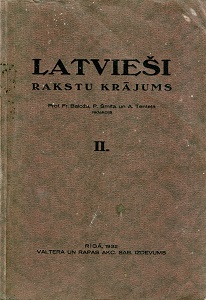
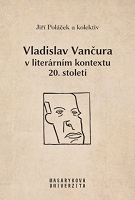
Vladislav Vančura je v lecčems podoben svému vzdálenému bratranci Jiřímu Mahenovi. Oba kladli důraz na morálku, statečnost a charakter, oba byli empatickými lidumily i renesančními osobnostmi mnoha talentů a zájmů. A pokud by Mahen neukončil svůj život dobrovolně roku 1939, patrně by ho během války potkal stejně tragický osud jako autora Markéty Lazarové. Vančura s Mahenem sdíleli obdobně pokrokové názory na divadlo. Vančura tvrdil zcela v duchu Mahenových tezí, že divadlo musí neustále experimentovat, je mu třeba „pokusných scén odpovídajících vědecké laboratoři“ (Závodský 1970, s. 32) a jeho povinností je „tvořiti soudobé hodnoty jevištní z textů starých a moderních“ (tamtéž, s. 32). Jisté rysy podobnosti vykazuje i jejich dramatická tvorba, která navzdory relativním úspěchům ve své době nebudí zájem současné dramaturgie. Je pro ně typická jistá neurčitost, abstraktnost (Šalda 1987, s. 332), rozkolísanost postav, nepokoj či nepředvídatelnost.
More...
Hra Josefina představuje vančurovsky specifickou adaptaci Shawovy hry Pygmalion a zároveň Vančurovo poslední drama. Je to komedie o pouliční zpěvačce Josefině, které si všimne profesor zpěvu Vydra a spolu s divadelním režisérem se ujme jejího pěveckého a hereckého vedení. Josefina se ukáže být velmi bystrou a zároveň svéhlavou studentkou a shodou okolností se také zakouká do nejtalentovanějšího studenta zpěvu Valentina. Vztáhneme-li k sobě poměrně banální zápletku (v žánru komedie či frašky jistě legitimní) s okolnostmi vzniku tohoto textu, nevyhneme se otázce, proč právě tomuto námětu Vančura věnoval svůj drahocenný čas v průběhu nacistické okupace. K odpovědi na danou otázku se můžeme dobrat prostřednictvím otázky jiné: jaký je smysl tohoto textu? (Hoskovec 2008) Nástroje k uchopení smyslu nám poskytne interpretační sémantika (Rastier 1987 a 1989), potažmo celostní filologie (Hoskovec 2010 a 2019).
More...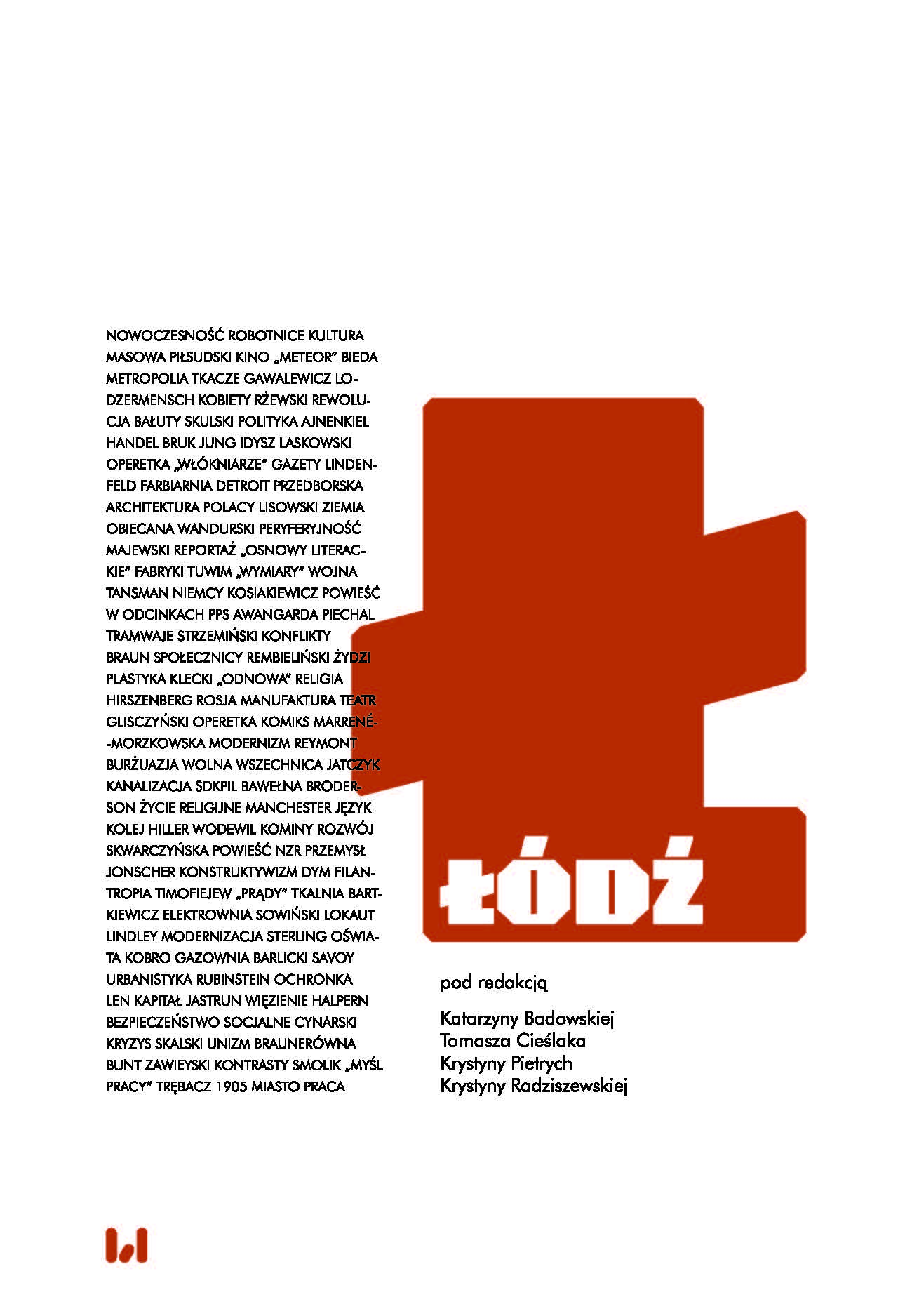
The aim of the article is an attempt to reconstruct and analyze literary representations of the sound environment of modernist Łódź, taking into account its diversity - city noise, industrial bustle, silence, processes of semantic harmonization or disintegration of the sonosphere as the effects of aural poetics. The field of interest also included issues related to the social diversity of the city's sound space. The sound environment of Łódź presented in literature until 1939 was presented as a sphere of literary resonances which, in varying intensities, highlight the resonance between modernity, its psychocorporeal experience and creativity.
More...
Since the first known professional theatre performance in Łódź (1844), local opinion-forming circles have been calling for the establishment of a permanent Polish-language theatre in this city. This was largely dictated by the post-Romantic belief in the need to emphasize the Polishness of the city by locating a permanent institution of high culture there - this was all the more important because the theatre of the German and Jewish minorities was developing relatively dynamically. In line with this project, many times - including in the press - the most appropriate repertoire for such a stage was outlined, with a special place reserved for national, preferably serious, dramas with patriotic overtones. Subsequent attempts to create such a scene ended in failure, increasing the frustration of many local elites and contributing to the creation of a myth about a city averse to dramatic art. Meanwhile, the inhabitants of Łódź had the opportunity to watch the entertainment repertoire shown in a similar period in other large European cities, which may prove both the surprising activity of traveling groups and the tastes of Łódź residents not differing from those of the industrial cities of the West. Moreover, Łódź also became the cradle of Polish folk theatre - a special type of theatre venture addressed to a working-class audience and modeled on similar theatres in Europe.
More...
America providing quite an attraction to provincial stages. A number of Polish and non-Polish theatre stars arrived in Lodz, a city developing in the late 19th century. Many of them hoped for professional and financial success. However, theatrical performances in a "city without tradition", carried certain risks. This article turns its attention to the paradoxically difficult reception of theatre stars' performances in Lodz, such as Ira Aldridge, Helena Modrzejewska and Isadora Duncan, who came to the city in the late 19th and early 20th centuries, although they did not always succeed in performing on stage.
More...
This article discusses the history of the German Thalia theatre in Łódź and its place in the wider context of the operetta industry of the early 20th century. The author draws attention to the challenges the Thalia had to face as a theatre operating in the provinces, which wanted to play the same modern repertoire as in European metropolises. It was difficult to fulfil these ambitions, among other things, due to falling attendance and the problem of keeping titles in the repertoire for longer and, consequently, financial difficulties. The theatre was also not helped by the scepticism of reviewers, who saw the operettas fashionable on European stages only as a temporary sensation. Meanwhile, operettas not only offered an escape from reality, but also subtly commented on social and political problems, making them a vehicle for the cultural politics of the era. Despite its commercial nature, the modern operetta had a deeper impact on the formation of societies and was an expression of mass identity. In this sense, it may have influenced the development of modern societies, including that of Lodz, which, on the eve of the First World War, tried to emulate the lifestyle of Western metropolises.
More...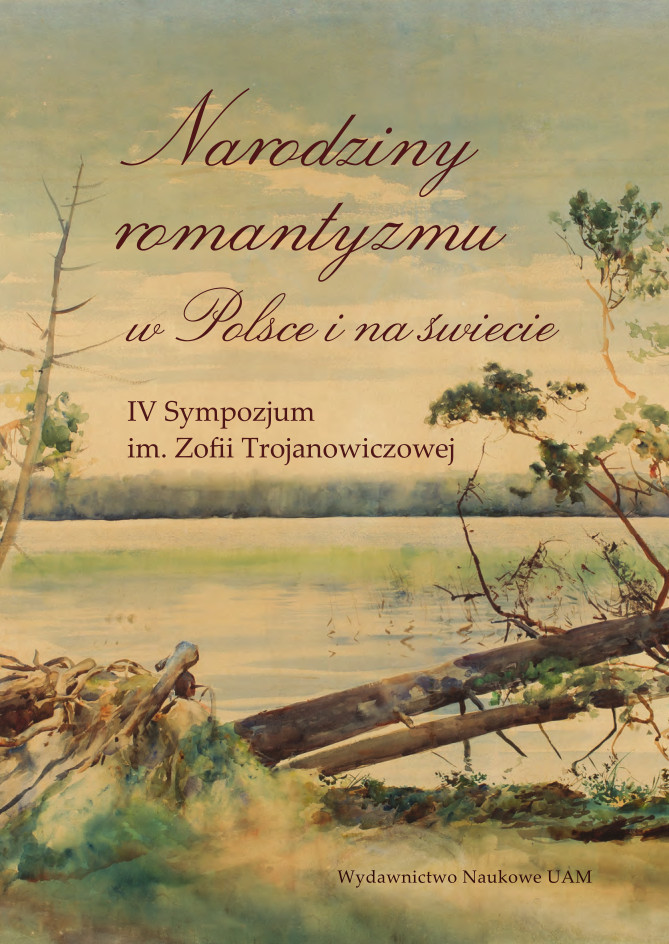
The starting point of the article is the question about the possibility of treating Adam Mickiewicz’s Widowisko as a popular drama. The author analyzes the work in terms of the genre’s rules, then wonders whether its shape was influenced by Mickie- wicz’s theatrical experiences or his reading. She then argues that Widowisko, more than theatre, was inspired by Johann Wolfgang Goethe’s Faust and Jan Śniadecki’s disserta- tion O pismach klasycznych i romantycznych (On classical and romantic writings), and that the work goes beyond the boundaries of both the drama genre and the Faustian convention.
More...